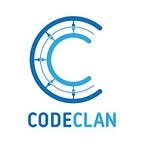The Head of Development opens the door and shows us into the main space. The first thing I notice on the right is a glass room filled with flagship mobile phones and tablets on display like an electronics store. Some of his team are huddled around them and I’m not sure if they’re testing apps or playing Candy Crush. They seem to be having fun though.
We pass the various product teams and there isn’t a suit in sight. Hell, there aren’t even that many shirts on show: t-shirt and jeans are ubiquitous and I feel slightly self-conscious in my trousers and shirt combo. Sticky notes and diagrams cover most of the available wall space, along with some exhortations about how it’s OK to fail.
As we get closer to the meeting rooms at the back of the office my eyes are inevitably drawn to the pool table and blackboard on the wall behind it. It’s just before 10 now so the table is empty but the HoD assures us that come lunchtime names will be chalked up and scores noted for future bragging rights.
This company have hired a number of our grads and I’m confident that pretty much anyone else who comes here for interview will be keen to secure the role. So, is this some cool, new start up? A software company keen to emulate Silicon Valley mores in dreich Central Scotland?
No, it’s one of the software development hubs at a well-known financial services institution famed for their stability and unlikely to score highly in a ‘companies most likely to have a pool table in the office’ survey.
Competing for Talent
Although not every organisation is clearing desks and setting up games rooms, most organisations have realised that competing for the best IT and digital talent is about much more than just offering a job for life and a decent benefits package.
With more vacancies than candidates, those with skills in demand can be much more particular about who they choose to work for. Environment, dress-code, flexible working and interesting project work are all key considerations, and companies who recognise this stand a better chance of securing the talent they need.
Work environment and culture are not the only things changing — many companies are now revisiting the academic qualifications they require when hiring into their digital teams. A few still hold out for a 2:1 minimum in a related degree from a specific university, often where the hiring managers graduated from back in the day (then wonder why diversity is an issue but that’s a subject for a whole other post…)
Thankfully this practice is starting to change and in many organisations, a candidate’s mindset and approach are more important than a piece of paper they got several years ago.
Rethinking The Offer
So does all of this mean companies struggling to hire should get themselves a pool table, rip up the academic requirements and just hire those who are positive and keen to do a good job? Of course not. Mindset is key, but thinking you can do something well is still not the same as actually being able to do it (as I demonstrate every time I step on a golf course).
Organisations will still have criteria that need to be met, and not every candidate is right for every company and vice versa.
What I believe it does mean though is that organisations need to be focused on all aspects of what they offer potential staff. They can’t rest on their laurels and assume that because they’ve been about for 150 years and offer a competitive salary that people will be queuing up to work for them.
They need to sell themselves to candidates in the same way they expect candidates to sell themselves during interviews. Those companies that recognise these shifts and work within them will continue to do well, will continue to hire the best talent and will continue to have low levels of turnover.
Those who don’t? Well, maybe they should consider that well-known quote about insanity, doing the same thing over again and start pricing up pool tables…
Graeme Jarvie is Industry Engagement Manager at CodeClan.
Originally published at digit.fyi on April 27, 2018.
